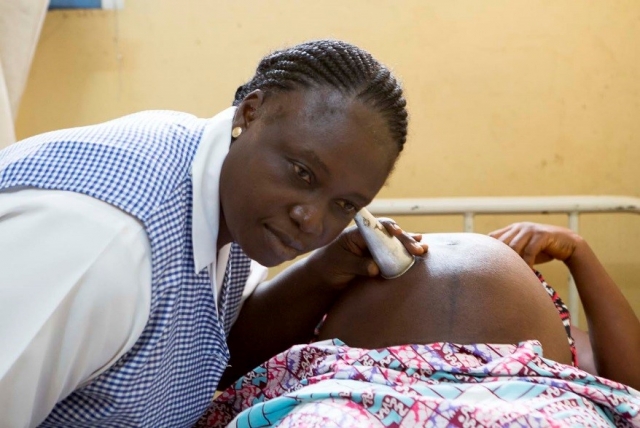The United Nations Population Fund (UNFPA) has revealed that Nigeria needs to recruit 70,000 midwives by 2030 in order to address the current shortage. The call was made by the Executive Director of UNFPA, Dr. Natalia Kanem, in a press statement released to mark the 2023 International Day of the Midwife. This year’s event has the theme “Together again: from evidence to reality.” The day is dedicated to celebrating midwives and their commitment to saving lives and ensuring the health and wellbeing of women and newborn babies.
Dr. Kanem explained that the 2021 State of the World’s Midwifery report estimates the midwife shortage to be around 30,000, or 6 per 10,000 people. To bridge this gap by 2030, the country will need to create about 70,000 additional midwife positions. However, current projections indicate that only 40,000 more midwives will be trained and employed by that time. Dr. Kanem noted that the shortage of midwives is particularly severe in northern Nigeria, where there are unmet needs for maternal and reproductive healthcare.
The consequences of not having enough skilled midwives are alarming, Dr. Kanem stated. She explained that in a world where a woman dies every two minutes due to pregnancy or childbirth, access to skilled midwives is essential to prevent preventable maternal and newborn deaths. “If every pregnant woman had access to a well-trained, caring midwife, we would be much closer to a world where every childbirth is safe,” she added.
Dr. Kanem also drew attention to the way many health systems marginalize midwives, treating them poorly in terms of pay, working conditions, and opportunities to develop their skills. She said that this, along with the global shortage of 900,000 midwives, reflects an assumption that they are not essential healthcare workers. However, this could not be further from the truth. They provide essential information on sexual and reproductive health, including family planning, and help people navigate often-sensitive issues in a variety of contexts, including in humanitarian settings. They are often the only healthcare workers serving people in hard-to-reach places.
Globally, 287,000 women lose their lives giving birth each year, while 2.4 million newborns die and an additional 2.2 million are stillborn. Dr. Kanem emphasized that this need not be the case. Universal access to midwives offers the best and most cost-efficient solution to ending preventable maternal deaths. By closing the midwives’ shortage gap, it would be possible to prevent two-thirds of maternal and newborn deaths, saving over 4.3 million lives a year by 2035.
In 125 countries, including Nigeria, UNFPA strongly advocates for quality midwifery care. Evidence shows that competent midwives can provide 90% of essential sexual and reproductive health care. Yet, because they are both underutilized and in short supply, they account for only 10% of those currently providing these services. Midwife-led care models improve health outcomes, increase patient satisfaction, and reduce costs. While midwives are often relegated to the periphery of healthcare, all evidence suggests that they should be at the center.
Dr. Kanem acknowledged that the shortage of midwives and the ongoing brain drain have contributed to the country’s maternal mortality ratio of 512 per 100,000 live births. She urged the government to recognize and treat them as essential and respected healthcare providers. UNFPA has been leading a global drive to promote and invest in midwifery, including through the groundbreaking State of the World’s Midwifery reports. From 2009 to 2022, UNFPA helped countries educate and train 350,000 midwives in line with international standards to help improve the quality of care they provide.
Dr. Kanem emphasized that investing in midwifery not only saves lives but also promotes gender equality and women’s empowerment, as midwifery is a profession dominated by women. She called on all stakeholders to come together to ensure that every woman and newborn has access to skilled and competent midwifery care.



